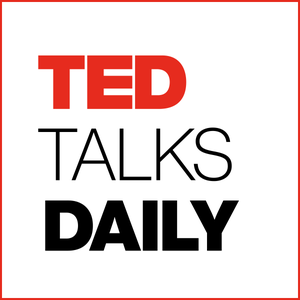
TED Talks Daily
TED
Ideas worth spreading from the TED Conference
- 11 minutes 39 secondsHow buildings can improve life — inside and out | Doris Sung
Architect and building tech innovator Doris Sung presents a compelling vision for reimagining building facades as active contributors to urban life and public health. Showcasing innovative technologies — like buildings that filter particulates out of the air and facades that react to heat — Sung demonstrates how modern architecture can evolve beyond aesthetics to address critical issues like pollution, energy efficiency and urban heat islands, offering a glimpse into a future where architecture improves life for inhabitants and pedestrians alike.
27 July 2024, 6:05 am - 16 minutes 8 secondsWar journalism should be rooted in empathy — not violence | Bel Trew
We need journalism that moves beyond a constant focus on violence and honestly depicts the full impact of war, in and out of the trenches, says conflict journalist Bel Trew. She makes a passionate call for war reporting to be rooted in compassion and truth, sharing stories that illuminate the human toll of conflict with the hope of healing our fractured world.
26 July 2024, 4:11 pm - 13 minutes 5 secondsThe problem with food and climate — and how to fix it | Jonathan Foley
Global food production — from meat to grains — accounts for a third of all greenhouse gas emissions, says sustainability scientist Jonathan Foley. He presents a portfolio of data-backed solutions to build a better food system world-wide, starting with four key steps to cut emissions.
25 July 2024, 4:22 pm - 8 minutes 50 secondsThe satellite helping slow climate change — right now | Millie Chu Baird
Meet MethaneSAT: the satellite circling Earth right now to track global emissions from methane: a highly potent, short-term greenhouse gas. Environmental advocate Millie Chu Baird details the heat-trapping side effects of a planet full of methane — and explains why understanding where it comes from and taking steps to reduce it is the single most important thing we can do to affect climate change in our lifetimes. (MethaneSAT is part of the Audacious Project, TED's initiative to inspire and fund global change.)
24 July 2024, 3:26 pm - 13 minutes 28 secondsWhat to do when you offend someone | Lambers Fisher
Misunderstandings between you and your loved ones will happen — it's what you do next that matters most, says marriage and family therapist Lambers Fisher. Drawing on his work helping couples and relatives work through communication issues, he shares four principles to accept the inevitability of offending someone close to you — and how to use these moments to build trust and empathy.
23 July 2024, 4:05 pm - 16 minutes 55 secondsWhat's possible when the arts belong to everybody | Lear deBessonet with Brian Stokes Mitchell
With huge, city-wide casts from an array of communities, theater director Lear deBessonet's productions illuminate the unique power of the arts to transform our lives through collective expression. She explores the power of spectacle to inspire awe, connect individuals and heal loneliness with tangible, life-changing results. In a dramatic moment, deBessonet's message comes to life when Broadway star Brian Stokes Mitchell takes the stage for a dazzling performance of "The Impossible Dream (The Quest)," accompanied by pianist Todd Almond, the MEI Screaming Eagles Marching Band and some surprise vocalists.
22 July 2024, 4:41 pm - 34 minutes 10 secondsSunday Pick: How much water do you actually need a day?
Glowing skin, increased energy, higher mental function and weight loss: These are just a few of the benefits we have been promised for the low cost of 8 glasses of water a day. But can this magical elixir really do all that it claims? Dr. Jen Gunter takes us behind the fascinating (and scandalous) history of hydration pseudoscience, unpacks the investigative report that ROCKED the beverage industry, and sits down with a nephrologist who tells us what's fact and what's fiction about our kidneys. It will quench your thirst for the truth about hydration. You can read the text transcript for this episode at go.ted.com/BodyStuffTranscript1
21 July 2024, 2:00 pm - 12 minutes 45 secondsHow to claim your leadership power | Michael Timms
When faced with challenges, do you often seek someone else to blame? Leadership expert Michael Timms shows why this instinct is counterproductive, highlighting three effective habits of self-accountability that will empower you and others to make positive change — whether at home or at work.
20 July 2024, 2:00 pm - 9 minutes 48 secondsBravery, brilliance and RuPaul Charles | On the Spot
In the debut of TED's new "On the Spot" rapid-fire Q&A format, Emmy-winning television superstar and drag icon RuPaul Charles answers questions about bravery, brilliance and more — all with his signature wit and wisdom. Get a glimpse inside RuPaul's head and hear his thoughts on the power of drag, the best way to slay, the most important personality trait -- and the best advice he's ever been given. (Featuring an equally rapid-fire Q&A with TED's Helen Walters.)
19 July 2024, 3:03 pm - 56 minutes 19 secondsWhy young people are worse off than their parents — and what to do about it | Scott Galloway and Chris Anderson
In this special conversation, NYU marketing professor Scott Galloway and head of TED Chris Anderson dive deeper into Galloway’s explosive recent TED Talk, which has been seen by millions and ignited conversations about what he calls “the great intergenerational theft,” or how older generations are stealing prosperity from the young. With razor-sharp insights on the skyrocketing cost of housing, the mental health crisis created by social media, reckless government spending and more, Galloway explores bold solutions to the most pressing issues facing young people — and delivers a few spectacular rants along the way. (If you’ve already seen Galloway's TED Talk, skip ahead to 20:25.)
18 July 2024, 3:39 pm - 11 minutes 29 secondsQuantum computers aren’t what you think — they’re cooler | Hartmut Neven
Quantum computers obtain superpowers by tapping into parallel universes, says Hartmut Neven, the founder and lead of Google Quantum AI. He explains how this emerging tech can far surpass traditional computers by relying on quantum physics rather than binary logic, and shares a roadmap to build the ultimate quantum computer. Learn how this fascinating and powerful tech can help humanity take on seemingly unsolvable problems in medicine, sustainable energy, AI, neuroscience and more.
17 July 2024, 3:58 pm - More Episodes? Get the App
Your feedback is valuable to us. Should you encounter any bugs, glitches, lack of functionality or other problems, please email us on [email protected] or join Moon.FM Telegram Group where you can talk directly to the dev team who are happy to answer any queries.
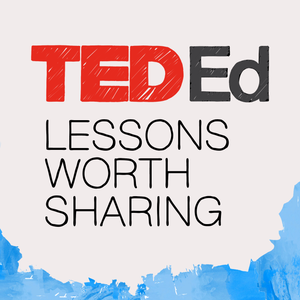 TED-Ed: Lessons Worth Sharing
TED-Ed: Lessons Worth Sharing
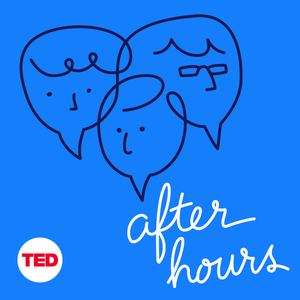 After Hours
After Hours
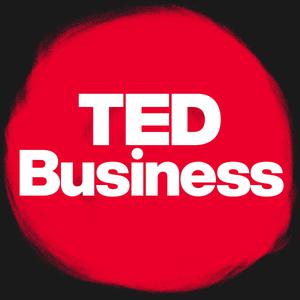 TED Business
TED Business
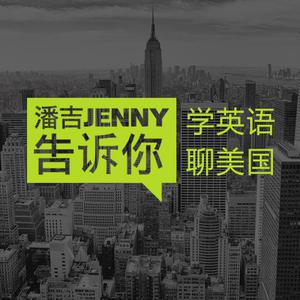 潘吉Jenny告诉你|学英语聊美国|开言英语 · Podcast
潘吉Jenny告诉你|学英语聊美国|开言英语 · Podcast
 All Ears English Podcast
All Ears English Podcast
 Daily Easy English Expression Podcast
Daily Easy English Expression Podcast